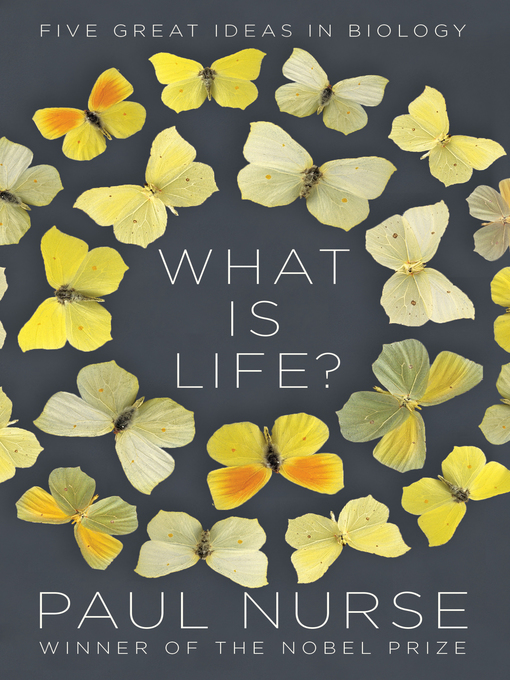The Nobel Prize–winning scientist's elegant explanation of the fundamental ideas in biology and their uses today.
The renowned biologist Paul Nurse has spent his career revealing how living cells work. In What Is Life?, he takes up the challenge of describing what it means to be alive in a way that every reader can understand.
It is a shared journey of discovery; step-by-step Nurse illuminates five great ideas that underpin biology—the Cell, the Gene, Evolution by Natural Selection, Life as Chemistry, and Life as Information. He introduces the scientists who made the most important advances, and, using his personal experiences in and out of the lab, he shares with us the challenges, the lucky breaks, and the thrilling eureka moments of discovery.
Nurse writes with delight at life's richness and with a sense of the urgent role of biology in our time. To survive the challenges that face us all today—climate change, pandemic, loss of biodiversity and food security—it is vital that we all understand what life is.


